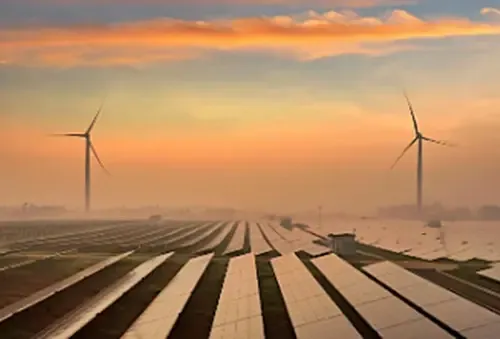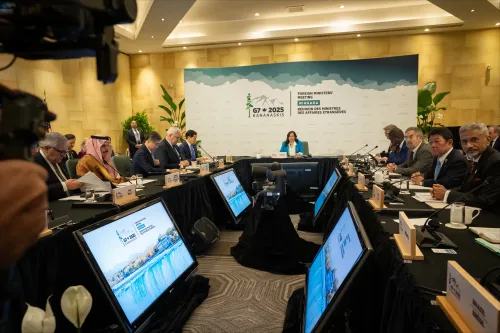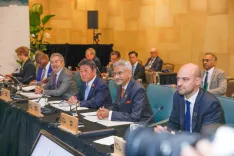Hungary and Partner Nations Collaborate on Green Energy Corridor between Caspian and Europe

Synopsis
Key Takeaways
- Plans for a major green energy corridor from the Caspian Sea to Europe.
- Construction of the world’s longest subsea power cable.
- Investment projected to exceed 10 billion euros.
- Joint venture established among Hungary, Azerbaijan, Georgia, and Romania.
- Potential inclusion of optical fiber cable for digital integration.
Budapest, March 10 (NationPress) Hungary, along with four allied nations, is developing what has the potential to be Europe’s largest green energy initiative aimed at enhancing regional energy security and reducing costs, stated Hungarian Foreign Minister Peter Szijjarto on Monday.
During a joint press briefing in Budapest with the energy ministers from Azerbaijan, Bulgaria, Georgia, and Romania, Szijjarto announced that these five nations are preparing a significant green energy corridor to facilitate the import of substantial amounts of renewable electricity from the Caspian Sea area into Europe.
"We anticipate a surge in electricity demand of approximately 50 percent by the end of this decade, and it is imperative that we satisfy this demand in a manner that is efficient, predictable, environmentally sustainable, and cost-effective," Szijjarto stated.
As part of this ambitious endeavor, the countries plan to construct the world’s longest subsea power cable, which will extend 1,100 kilometers beneath the Black Sea. Upon completion, this infrastructure will not only enable green energy imports but also bolster Central Europe’s competitiveness. He noted that the region currently grapples with electricity prices that are three to four times higher than those in the United States or China.
The Hungarian minister confirmed that Azerbaijan, Georgia, Hungary, and Romania have already initiated a collaborative venture to carry out this project, with Bulgaria expected to join shortly.
Beyond electricity imports, the initiative may also involve the installation of an optical fiber cable, further enhancing the region's digital infrastructure, as reported by Xinhua news agency.
"This is projected to be an investment exceeding 10 billion euros (10.8 billion U.S. dollars), introducing new renewable energy sources to Europe," Szijjarto remarked.
He emphasized that this initiative is a critical step in securing energy supplies for the area, ensuring that future energy prices remain more affordable compared to the rest of Europe.









